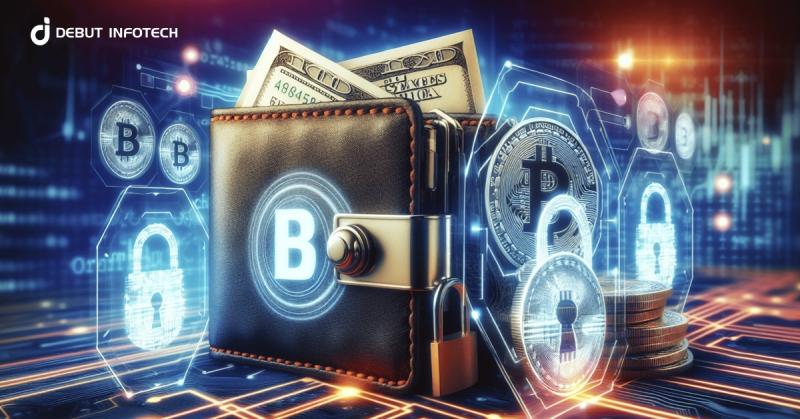What is a DeFi Wallet? A Comprehensive Guide

In the rapidly evolving cryptocurrency world, decentralization has become a cornerstone of blockchain innovation. Among its many applications, decentralized cryptocurrency wallet—or DeFi wallets—stand out as a key component, offering users unparalleled control over their digital assets. But what is DeFi wallet, and how does it differ from traditional cryptocurrency wallets? Let’s dive into the details.
Understanding DeFi Wallets
A DeFi wallet is a cryptocurrency wallet that allows users to manage their digital assets without relying on centralized entities such as banks or exchanges. These wallets leverage blockchain technology to enable peer-to-peer transactions, ensuring users control their private keys and funds fully.
Unlike custodial wallets offered by exchanges, DeFi wallets are non-custodial, meaning no third party can access your assets. This not only enhances security but also aligns with the decentralized ethos of blockchain technology.
Key Features of DeFi Wallets
Decentralization
DeFi wallets eliminate intermediaries, giving users direct control over their assets. This empowers individuals to transact freely and securely.
Cross-Chain Compatibility
Many DeFi wallets support multiple blockchain networks, including Ethereum, Binance Smart Chain, and TRON. For example, wallets compatible with TRC20 wallets facilitate transactions on the TRON blockchain.
Private Key Ownership
A DeFi wallet ensures that only the user holds the private keys, enhancing security and reducing the risks of centralized failures.
Access to DeFi Ecosystem
DeFi wallets are a gateway to decentralized finance, enabling users to interact with protocols like staking, lending, borrowing, and yield farming.
Benefits of Using DeFi Wallets
Enhanced Security
By eliminating third-party custodians, DeFi wallets minimize risks associated with centralized breaches or fraud.
Financial Sovereignty
Users enjoy complete ownership and control of their assets, a critical advantage in an era of increasing privacy concerns.
Global Accessibility
DeFi wallets enable borderless transactions, allowing users from any part of the world to participate in the cryptocurrency ecosystem.
Choosing the Right DeFi Wallet
When selecting a DeFi wallet, consider the following factors:
Security Features
Look for wallets that provide advanced encryption, two-factor authentication, and backup options.
Multi-Chain Support
Ensure the wallet supports diverse blockchain networks, including TRC20 wallets for TRON-based transactions.
Ease of Use
A user-friendly interface can make navigating the DeFi ecosystem seamless, especially for beginners.
Integration with DeFi Protocols
Choose wallets that offer direct access to staking, lending, and other decentralized applications.
Conclusion
A DeFi wallet is more than just a tool for storing digital assets; it’s a gateway to the decentralized financial ecosystem. Whether you’re an individual seeking control over your crypto assets or a business exploring opportunities in the blockchain space, adopting or developing a DeFi wallet is a step toward greater financial autonomy and innovation.
By leveraging cryptocurrency wallet development services and exploring solutions like white label crypto wallet, you can stay ahead in the dynamic world of decentralized finance.
Post Your Ad Here
Comments